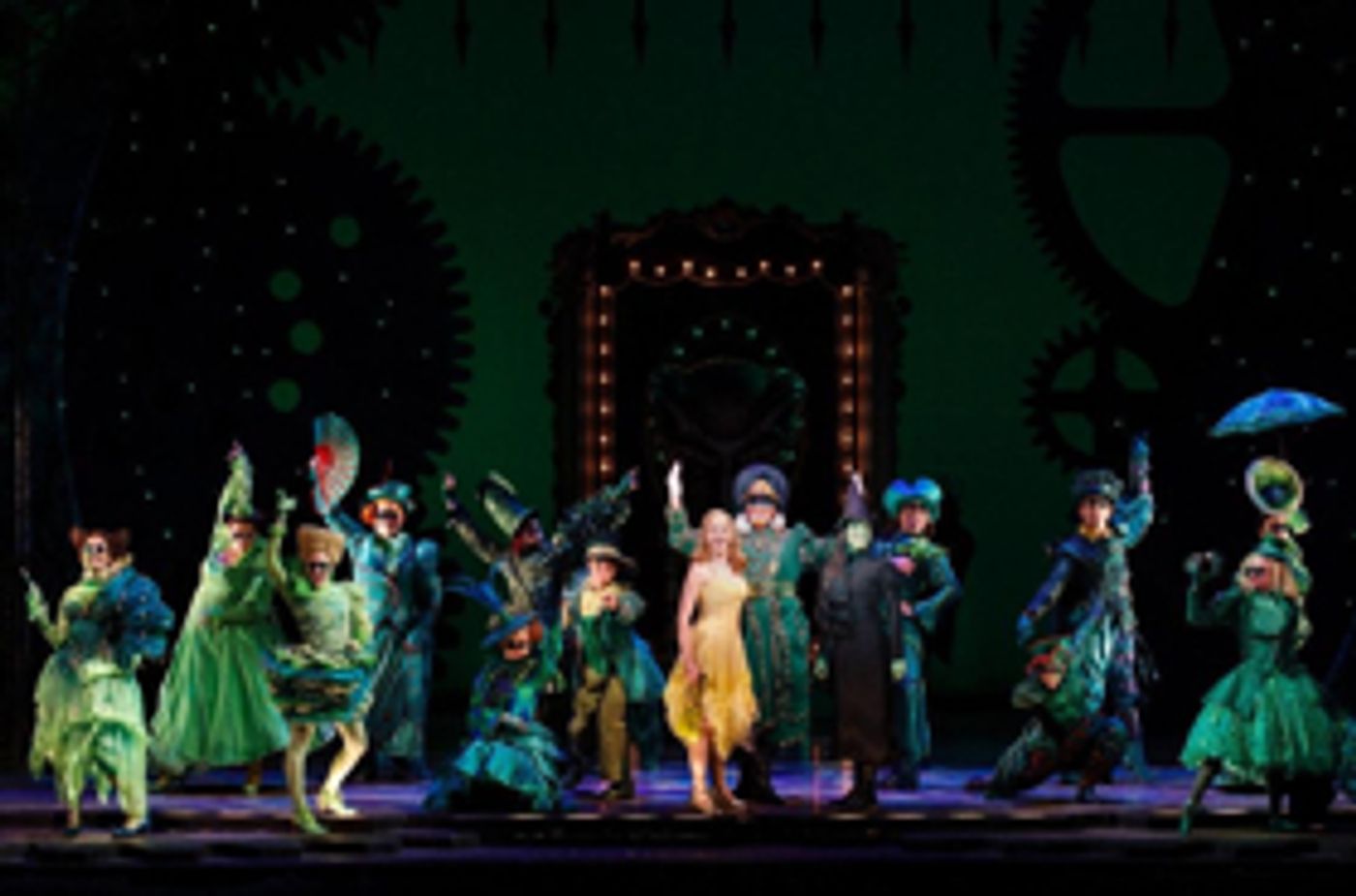Review: WICKED Proudly Presents Autism-Friendly Performance in Pittsburgh

There's a land that you've heard of, once in a lullaby. It's a land of witches and wizards, talking animals and munchkins, and sorcery and dreams. Wicked transports you to the Land of Oz where the untold story of its witches unfold on stage in the most elaborate of fashions. The show is in Pittsburgh for a three-week stop and offered an incredible autism-friendly performance as well (more on that a little later).
Millions of people around the world know the story of The Wizard of Oz, complete with an understanding of Glinda - The Good Witch, The Wicked Witch of the West, and the wonderful Wizard of Oz, but the 2004 musical Wicked challenges the commonly held preconceptions of the story's biggest characters. In reality, The Wicked Witch, named Elphaba in the show, is a misunderstood green outcast with a big heart made of gold...and Glinda is ditzy.
The two first meet at "Dear Old Shiz" where they are forced to room together. Glinda, popular and extremely extraverted, eventually befriends Elphaba, who everyone runs from, makes fun of, and loathes. Their relationship becomes complicated when both witches view Fiyero, the new bad boy, hot shot in town, as an attractive suitor.
Still, even with the public's disapproval for the green Elphaba growing daily and compounded by denouncements from the unsentimental Wizard of Oz, the friendship between Elphaba and Glinda rarely wavers - a testament to the unyielding power of an unbreakable female bond. The iconic song "For Good" expresses this: "I know I'm who I am today, because I knew you."
The multiplatinum soundtrack of Wicked features unremarkable melodies that have entertained for over a decade and will undeniably be remembered as some of the most popular of the century. Composed by Stephen Schwartz, the songs to Wicked are illuminated on stage tenfold, by the voices of the actors, the ambiance of the orchestra, and the special effects of all technical elements involved in the extravagant spectacle.
For instance, "No One Mourns the Wicked" opens the show. Citizens of Oz are loudly pronouncing the good news of the Wicked Witch of the West's death. The fanfare is accented by their booming voices and prominent gestures of celebration. And Glinda transcends the vertical space of the stage, floating down from the heavens in a bubble and wearing a lavish baby blue colored dress.
Throughout the two and a half hour show, the splendor continues with intense musicality from Mary Kate Morrissey (Elphaba) in "The Wizard and I," Ginna Claire Mason (Glinda) in "Popular," and Pittsburgh native Michael Campayno (Fiyero) in "Dancing Through Life."
The magic of Wicked is something that is best understood holistically at the theatre. Combining all of the aspects of the show creates a unique presentation that is seamlessly replicated multiple times a week under the spotlight. On February 3, at the Benedum Center, this was altered by the cast and production staff of the show.
The Pittsburgh Cultural Trust, in conjunction with the touring production of Wicked, teamed up to offer the first ever autism-friendly performance of the show outside of New York City. The Trust bought out the entire auditorium and sold the tickets at reduced prices to patrons on the autism spectrum and their family.
What does an autism-friendly performance look like? For starters, it begins with a warm welcome to the Benedum Center on a blistery winter day. Plenty of Benedum staff members and volunteers greet patrons in the lobby and give out free puffer balls as a fidget and comfort object. Ample help is provided for those taking and finding their way to their seats.
With the house seated, the lights dim and remain dimmed for the majority of the show. The music starts and the cast filters on stage, but the sound is noticeably different from a typical production. Muted instruments and turned-down microphones make the noises coming from the speakers less jarring and abrasive. There is also a reduction in the amount of strobe lighting focused on the audience.
These changes do not detract from the heart of the show. If anything, these changes embrace the core values of Wicked, giving every audience member the chance to fly as Elphaba. The Cultural Trust wanted to foster a judgment-free environment and even staffed quiet and play areas in the lobby before and during the performance, with specially trained volunteers offering support. The musical's curtain call concluded with the actors bringing on stage the same puffer balls that were given to audience members before the show.
In all, the Cultural Trust should be commended for its support of the autism community and the strides it took to make the show possible for those on the autism spectrum. This was not the first time an autism-friendly show has been offered in Pittsburgh, but it is nevertheless worthy of recognition.
As for the witches and touring company, only a few more performances on the Benedum stage remain before they fly off to Ft. Lauderdale. So mount your broom, don your pointy hat, and be changed for the better when you see Wicked.
To see or not to see score: 8/9; Strongly Recommended Show
Photo by: Joan Marcus
Reader Reviews
Videos


